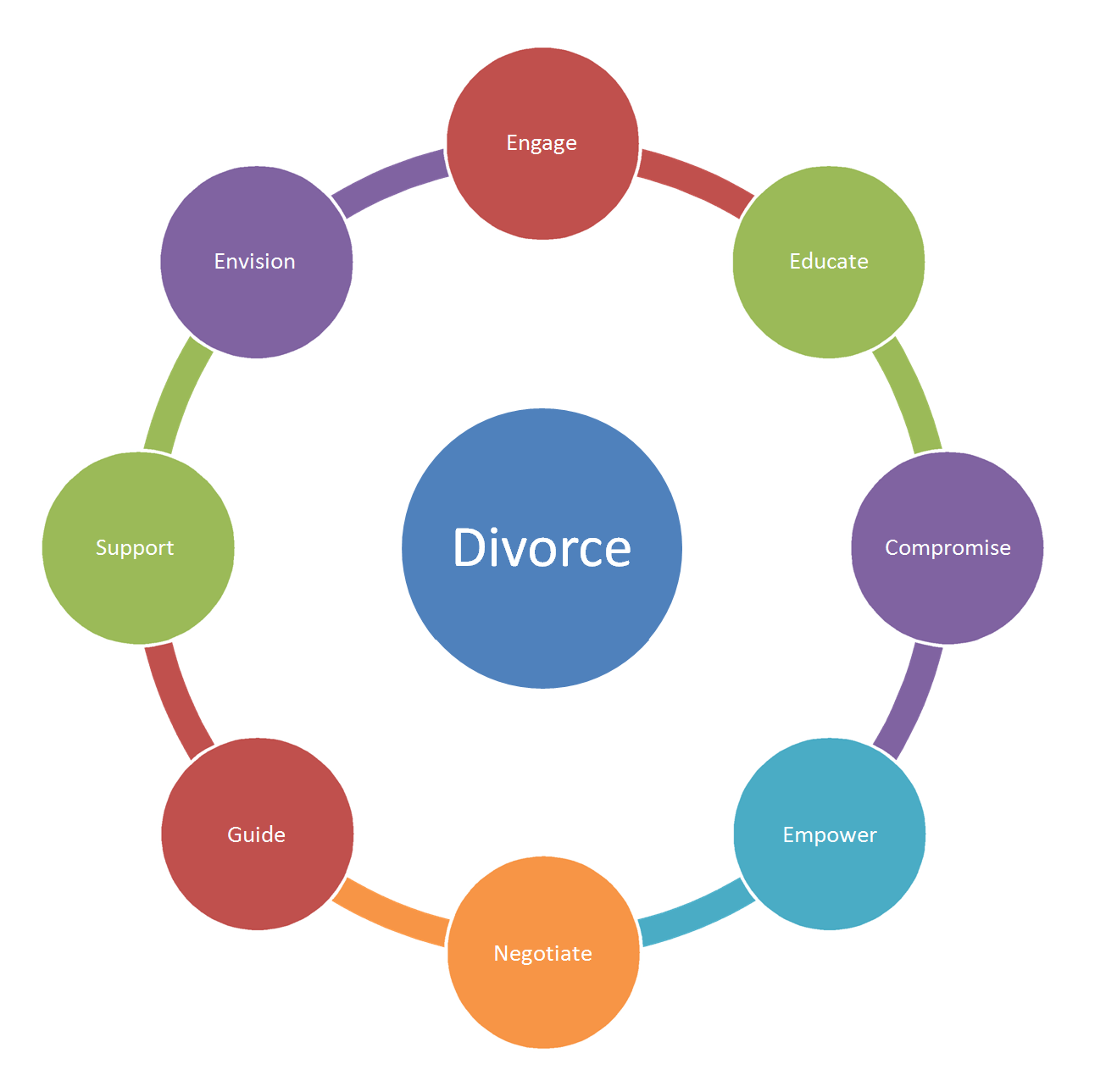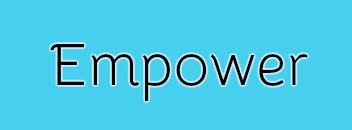A Coaching Model Created by Sheila Brennan
(Divorce Coach, UNITED STATES)
 The Clear Advantage
The Clear Advantage
Divorce is a time of intense change and often upheaval for an individual, a couple and a family. For an individual, the future is unknown and fear of the unknown can be gripping. Fear may be one of the driving factors that prevents you from moving forward. The role of the Divorce Coach is to help you find your voice, take control of that which is controllable and move forward in an acceptable manner. The services of a divorce coach are unique for every client. Each client enters the coaching relationship differently based on their needs and their place in the divorce process.
This model is not linear in nature.
The client dictates their needs to the coach and the coach acts accordingly. Some clients will approach the table with a broader toolbox. They may need to be empowered for future growth. Other clients may need to gain an understanding of the role of compromise and negotiations in the ending of their marriage. Other clients will need emotional support to navigate the conclusion.
Divorce is an individual, unique experience. And it’s important for the coach to recognize the client’s individual needs and work with the client to propose the best strategy and approach as the client ends one chapter of life and embarks onto the next.
 During the divorce process, compromise is used to reach decisions. Decisions can either be made between the parties themselves or can be created by the attorneys. The best case is where the parties have reached a consensus themselves.
During the divorce process, compromise is used to reach decisions. Decisions can either be made between the parties themselves or can be created by the attorneys. The best case is where the parties have reached a consensus themselves.
In order to equitably split the assets, effective compromise is necessary. The client learns how to compromise even if they are convinced that any attempt is futile.
Clients gain an understanding of the value and role of compromise. Often compromise has not been a tool in the marriage.
 The client often feels that he/she is at a significant disadvantage in the process. One reason might be the understanding that the court systems favor one party over the other. Another is the perception that there is a good guy/bad guy in divorce.
The client often feels that he/she is at a significant disadvantage in the process. One reason might be the understanding that the court systems favor one party over the other. Another is the perception that there is a good guy/bad guy in divorce.
A client feels empowered by understanding the system and how it works. They also become empowered by understanding his/her role in the process. Better clarity and understanding leads to empowerment.
One party often perceives himself/herself as the victim. The client will learn how to shed the ‘victim’ label and approach the situation more confident with knowledge and skills.
 Clients often feel intense shame and failure as the result of the demise of their marriage. As a coach, I encourage my clients to build a support team.
Clients often feel intense shame and failure as the result of the demise of their marriage. As a coach, I encourage my clients to build a support team.
Clients often engage professional services as needed. That can include an attorney, a coach, a financial advisor, an accountant, a real estate broker, a mortgage lender, a mental health professional, a private detective, etc.